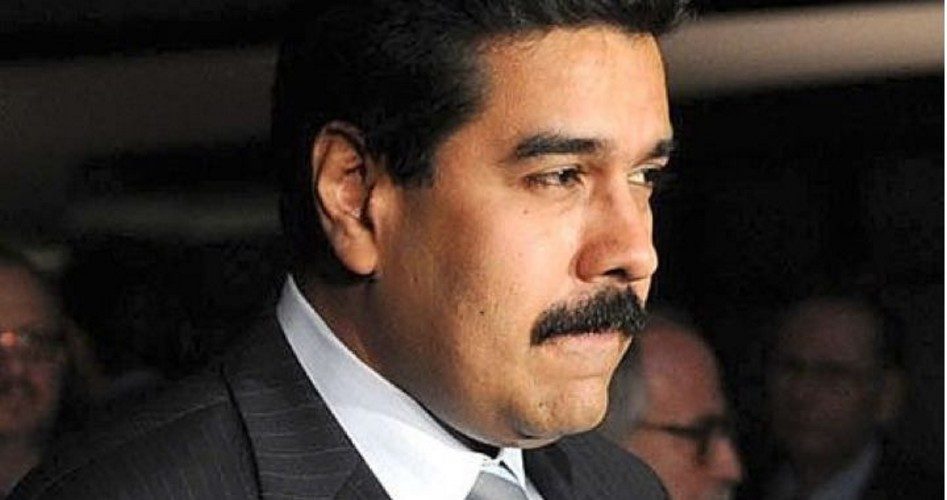
Following Marxist dictator Nicolás Maduro’s (shown) sham reelection to a third six-year term as president of Venezuela on May 20, economic conditions in the plagued nation continue to worsen as the country faces growing isolation from the international community.
U.S. Secretary of State Mike Pompeo tweeted that the election was a “sham,” while State Department spokesman Heather Nauert said the election wasn’t legitimate. Vice President Mike Pence called the election “a further blow to the proud democratic tradition of Venezuela.”
A May 22 Reuters news report observed that following the election, many people lined up at the main bus terminal in Caracas to buy tickets and board buses out of the country, most headed for neighboring Cucuta, Colombia.
With the inevitable outcome of the rigged election apparent to almost all Venezuelans, it is surprising that anyone would wait for the results to be officially announced before making their departure. In fact, many had already left. A recent AP report noted that hundreds of thousands of migrants have left Venezuela during the first three months of this year.
An AP report on May 21 observed that as a result of largely boycotting the recent election to protest its illegitimacy, Maduro’s political opponents are even more powerless than they were before the election. If Maduro is to be removed from power, as is likely given the rapidly deteriorating state of the country, it will most likely come from economic pressure put on the Maduro government by outside forces, in the form of sanctions.
AFP and Reuters reported that while meeting on the sidelines of the G20 meeting in Buenos Aires on May 21, representatives of Argentina, Canada, Australia, Mexico, Chile, and the United States said in a joint statement that they would not recognize the result of Venezuela’s presidential election. Branding the election “illegitimate,” the six countries said that they were “considering possible political, diplomatic and financial sanctions against the authoritarian regime of Maduro.”
President Trump signed an executive order on May 21 barring Americans from buying debt obligations from Venezuela. Venezuela has been selling off these financial IOUs to bring in cash and Trump’s order effectively tightens pre-existing sanctions and will reduce Venezuela’s cash flow.
AP noted that Venezuela’s financial woes triggered by a collapse in oil production and previous U.S. sanctions barring the government from restructuring its debts will likely only worsen the country’s misery.
Photo of Nicolas Maduro: Fabio Rodrigues Pozzebom/ABr via Wikimedia
Related articles:
Fraudulent Election in Venezuela Guarantees More Suffering
Colombia Overwhelmed With Venezuelan Refugees, Deports Some
Pence Wants Venezuela to Cancel Scheduled Election and Get Out of OAS
Creditors Gathering to Plan Seizures Following Venezuela’s Defaults
Starvation, Suicides Increasing Under Venezuela’s Hyperinflation
Nearly 3,000 Venezuelans Leaving Their Country Every Day
Venezuela’s Crude Oil Exports to U.S. Declining Sharply
Venezuela Pushes Presidential Election Forward With Maduro the Only Candidate



